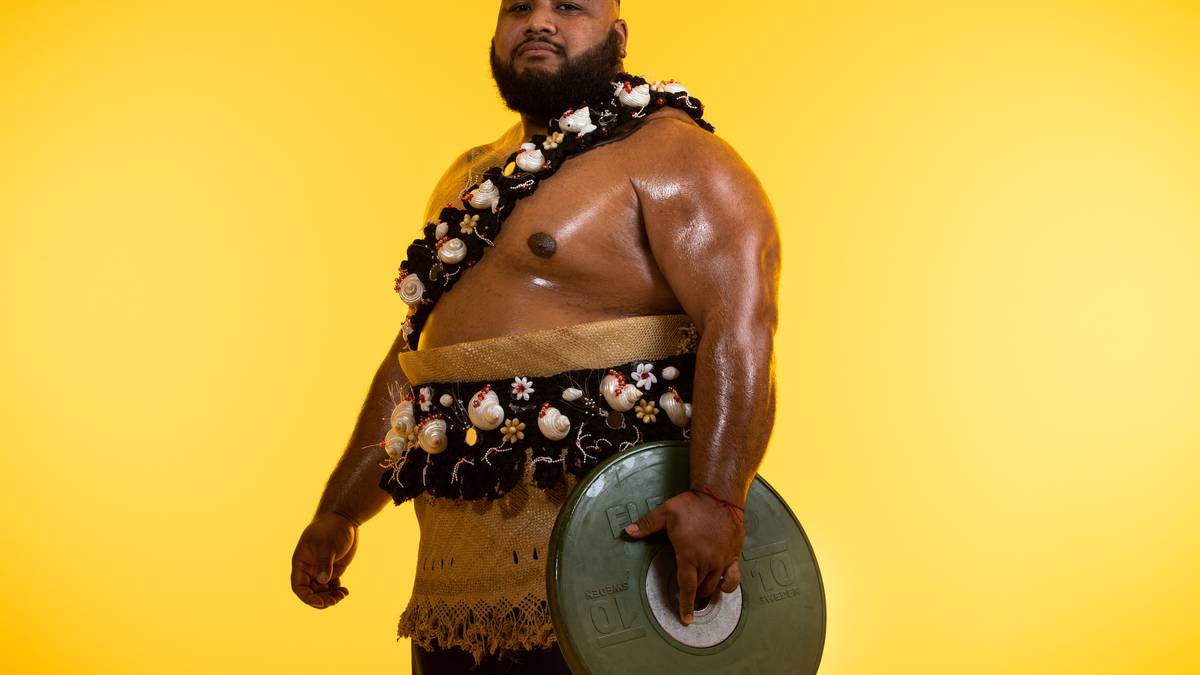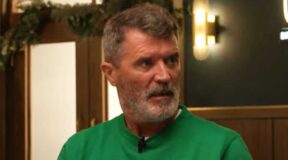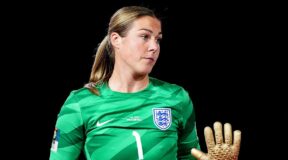The Herald continues its series on 12 Kiwi athletes or teams to keep an eye on at the Games – whether for their medal potential, rapid global rise, or captivating road to Tokyo. This is the story of David Liti.
Part I: Jack Lopas
Part II: George Bennett
Part III: Ella Williams
Part IV: Emma Twigg
Part V: David Nyika
Part VI: Peter Burling and Blair Tuke
Part VII: Dame Valerie Adams
Part VIII: Lisa Carrington
Part IX: Jaime Nielsen
Part X: Sam Tanner
David Liti mentions it nonchalantly, with a look of regret.
Seventy-four minutes into an intense interview, the Kiwi Commonwealth Games medallist reveals that if steroids and other performance-enhancing drugs weren’t used in weightlifting, he believes he’d be the strongest person in the world.
It’s the sort of comment usually reserved for trash-talking extroverts, or cocky attention seekers. But that’s not who he is. Liti is deep, Liti is reflective, Liti is… different.
He stands 182cm, weighs 181kgs, can do the splits, can lift a truck, once put on 11kgs in seven days, can lift 229kgs over his head, and is New Zealand’s, and possibly the world’s, most powerful weightlifter. He’s also frustrated at his sport, but we’ll get to that.
Somehow, Liti’s body isn’t his most impressive asset. The thing that separates him from the rest of NZ’s weightlifters is his mental strength. His journey wouldn’t have been possible without it, and it’s been a hell of a ride.
Liti enjoyed an extended 15 minutes of fame in Aotearoa after setting a record on the way to winning Commonwealth Games gold in 2018.
It was the culmination of a two-year campaign, but the very fact he was competing at that level at all was a story of triumph over adversity.
The 24-year-old was born in New Zealand, the second youngest of 11 children, but spent the first 10 years of his life in Tonga before moving back to New Zealand. Times were tough.
“When we first moved back we stayed in my auntie’s garage,” Liti said. “We moved around in that first year, like six or seven times. We just couldn’t find the right house. Finally, in 2007, we found a house that was stable enough for us and we were there for 10 years.”
Liti’s parents moved back to Tonga soon after and it was his siblings’ job to provide for each other.
“We had no money. We’d eat if we could. Sometimes we had toast for dinner, sometimes we had sleep for dinner.”
His challenging home-life soon conflicted with his ambition. As a schoolboy Liti was incredibly powerful and a talented rugby player, but when weightlifting came into view as a career path it created friction in the family.
“It was hard for my family to accept that I wasn’t going to study and I wasn’t going to keep working. The hard thing for my sister was how she was going to support me, or fund me, when she could barely provide for herself. At one point all my savings went into the 2015 Pacific Games. I had $17 in my account after that.”
Liti said that for over a year there was constant back-and-forth with family about prioritising money and “a career”, over his weightlifting dreams.
“Deep down it hurt me, but I knew they just wanted the best for me. At the time I wasn’t winning big things so, for them, it didn’t seem like it was worth it.”
In 2016, that all changed.
When Liti became the youngest Kiwi to attempt 200kgs on the clean and jerk in 2016 it set off a chain of events that would lead him to the top of the weightlifting world.
Three months later, after “training the house down”, he took home silver at the Oceania champs in Fiji with a lift of 206kgs, before heading straight into the Junior Worlds which was a big turning point for his family.
“I came fourth in the clean and jerk, 11th in snatch and ninth overall. I could just feel it when I came back, they knew fourth in the world was a big deal. I could feel their support 100 percent. It took a year and half, but that made me so happy and proud.”
Two years later Liti sunk to his knees in a tearful embrace with coach Tina Ball after his stunning final lift secured Commonwealth Games gold at the Gold Coast. But according to a few Auckland doctors, he shouldn’t have been competing.
Liti picked up a back injury in a training camp in New Caledonia three months out from the Games.
“I couldn’t walk properly, I couldn’t sleep, I came back to New Zealand and we went to the doctors and they didn’t even know what was going on.
“For three weeks I went to the doctors and for three weeks they said I shouldn’t go, and I remember telling my coach Tina ‘fuck those guys, I don’t want to ever see them again’.”
“So we started training the next day, six weeks out from the Games.
“I thought I would be, at best, third, but when competition day came around, I was feeling good. I felt like the happiest man on earth, just for being there.”
Liti’s “unexpected” gold, and the emotional outpour that followed was one of New Zealand’s most memorable moments from the Games.
“I just remember dropping down to my knees and crying. I was like ‘shit the last year and a bit has been the worst of my life and now all the hard work just made sense’.
“I had to turn my phone off. I went from 3000 to 8000 on Instagram overnight. By the time I was done with media arrangements and drug testing and got back to the village it was 12.30am. I knew not to look at my phone. I threw my bag down, then had an hour-long shower, and cried a lot.
“When I turned my phone back on I had hundreds of messages. It took me over a year to clear my inbox.When I woke up, I had to check if I was dreaming. I checked the box where the medal was to make sure.”
Five years ago, Liti hated weightlifting “with a passion”.
“I only started loving weightlifting after I’d gone to Junior Worlds, so mid 2016.
“For years I did weightlifting thinking ‘this is crap’. I don’t know what it was exactly that kept pulling me back into the gym, but maybe it was competitiveness. I really wanted to prove people wrong; all those who said ‘he’s just going to be a fat potato on the couch’. I remember thinking, ‘ think what you want mate, in five years you’re going to be rolling my name out from your tongue’.”
Liti went to school at One Tree Hill College in Auckland and said all of the 20 students that were introduced to weightlifting with him quit after one week.
“We all hated weightlifting. I then got into rugby, but for some reason kept thinking about lifting. I could do it for free, I could train at the gym, and get stronger for rugby. But then within eight months of training, I broke my first NZ record.”
Liti showed promise as a rugby player and played in an Auckland representative team with All Black Rieko Ioane. Liti jokes that he played positions 1, 2 and 3.
“I was the whole scrum. If I was at a school that had a better rugby programme, I think I definitely would have gone that way.”
But Liti didn’t follow the “typical cultural ways of life of an islander.” He found something in weightlifting that connected with him on a deeper level.
“I’ve always thought that I was born mentally strong. But as you go on, like with many sports, weightlifting teaches you about life. It makes you think about things differently. Before I lift I tell myself ‘if I die, I die because at least I tried’. Now a lot of things don’t really phase me.
“What sets me apart from every other weightlifter in New Zealand, and allows me to smoke the competition, is my mental game.
“I know a lot of people who say, ‘man I wish I had your life’, or ‘ your life looks so easy’. But they never understand there are nights when you can’t sleep because you’re too sore.
“There are days when you can barely get out of bed because your arms and legs are too sore, and there are days when you think you can lift, but you get there and you just crumble. Most of the sessions you’re dreading. But hard work pays off.”
Liti believes that he would win a gold medal at the upcoming Tokyo Olympics, if the sport of weightlifting was clean of drug users.
Liti said he often has conversations with friends, theorising about how much he believes he would dominate the worldwide competition if he was on steroids.
“I can say this wholeheartedly, that if I was to compete in a world where it [the sport] was clean right now, I would smoke everybody, every single one of them.”
In fact, Liti goes one step further to claim that if steroids and other enhancing drugs didn’t exist, he would lay claim to be the strongest person in the world right now.
However, as it stands, the 181kg Liti’s goal for his performance in Tokyo is much more modest.
“A realistic possibility right now, with how corrupt weightlifting is… I want to at least finish top five.”
Liti is not the first New Zealand weightlifting representative to speak out about alleged doping in the sport.
2014 Glasgow Commonwealth Games gold medallist Richard Patterson told the UK’s Daily Telegraph in 2008 that weightlifting’s drug-tainted image had become an “accepted part” of the sport that clean athletes had to ignore.
“I can do the best that I can do, knowing that I’m a clean athlete,” Patterson said.
“You have to be happy with that. To know that you can foot it on the same stage as people that might not be is a great feeling anyway. You just take that as part of the sport.”
In 2020, Canadian law professor Richard McLaren – who was responsible for exposing the full scale of the Russian doping scandal revealed similar cover-ups and millions in missing cash in the sport of weightlifting.
His investigation into the International Weightlifting Federation (IWF) found 40 positive drugs tests had been “hidden” and that athletes whose cases were delayed or hushed up went on to win medals at the World Championships and other events.
Liti also has other concerns about his future in weightlifting.
“I’m not sure I want to bury my head into weightlifting. I think I will definitely go to Commonwealth Games next year, but after that, I’m not sure.
“I’m not sure if I want to carry on just doing this one thing, where I’m not actually starting to provide for those around me.
“If I do go to the Paris Olympics, I think it will be on the side. I will have to start building what I want to do.
“But right now, the focus is on Tokyo. And I don’t want to get too far ahead of myself.”
Source: Read Full Article

/cloudfront-ap-southeast-2.images.arcpublishing.com/nzme/5D57UFFYHIA26FRW6APX65XMZM.jpg)
/cloudfront-ap-southeast-2.images.arcpublishing.com/nzme/5BIHSVKLJFQGCAELQ3F2SK2CFE.jpg)
/cloudfront-ap-southeast-2.images.arcpublishing.com/nzme/QAJ6JJXAKX4ZTE3LYG232BO4XU.jpg)
/cloudfront-ap-southeast-2.images.arcpublishing.com/nzme/B2UUH4JBAZCXGRUDUNVLGHIFL4.jpg)




